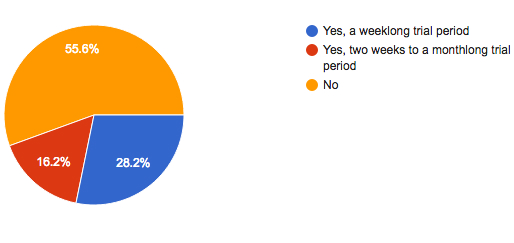
MANHATTAN — The majority of Upper East Side parents don't do background checks or draw up contracts for their nannies, according to a DNAinfo survey.
Background checks can involve a scan for criminal histories and a social media check, according to nanny experts, and contracts may include anything from allotted vacation time to confidentiality agreements, forbidding nannies from revealing emotional or physical illnesses in the family.
And some of those who admitted to not writing up agreements said they regretted it after nannies left them without notice, took extra time off or told other nannies about the health and wellbeing of their kids.
More than 64 percent of local parents said they did not do a background check on their nannies, according to the survey, in which 120 Upper East Siders responded.

Upper East Side-based nanny and childcare companies said it is common for parents not to do a background check when the nanny has worked with a friend or family member, but it's still a good idea to do one.
"You'd be surprised how many nannies use different names," said Limor Weinstein, a childcare and nanny services specialist. "Some people just don't know how important a background check is and parents can be kind of naive. You can't trust somebody until they earn your trust."
Weinstein's company performs a number of background checks, including criminal and social media checks, that start at $350.
If you do a background check, it's important to ask the right questions, including the spelling of their name, their social security number and if they've ever used a different name, Weinstein said.
And before you hire your nanny, it's a good idea to set out your expectations in a written agreement to clear up any confusion.
Roughly 76 percent of Upper East Side parents surveyed said they didn't make an agreement and more than 66 percent of them don't even have an agreement about giving notice when a nanny wants to leave their job.
Those that did make a contract with their kids' caretakers set out hours, benefits, job responsibilities and terms of employment. Others said they outlined vacation and sick days and other expectations.

Many who did not, said if they could go back and do it again, they'd make a contract stating the number of days off and hours to work.
"The most common issue people have is about vacation time," Weinstein said. "Nannies get really angry. I've heard a lot of them complain about it but don't feel comfortable telling the parents. It's really fair. They're people too and they need to make plans."
If you don't set out your expectations from the beginning, it can create a lot of problems. In fact, a lot of nannies expect to have paid federal holidays, but many parents don't give all of them away, said Erin Maloney-Winder, the owner of Abigail Madison Staffing on the Upper East Side.
Maloney-Winder suggested making everything clear up front by creating an emergency contact list, outlining what the policies are in your home, including what you expect in terms of seasonal vaccines the nanny needs, and even an agreement on confidentiality.
Nannies see a lot and parents should be able to rely on him or her to keep things private, which is why signing an agreement is important, Maloney-Winder said.
"Nannies shouldn't be revealing emotional or health issues," she said. "I've heard people talk and it's inappropriate."
One parent who took DNAinfo's survey wrote they regretted not asking for a guaranteed minimum of hours worked and another said it would have helped to be clearer about time off because their nanny has been taking extra days.
Another parent advised others to "be clear on time off," they wrote. "Understand the expectations from both your nanny and yourself. Think about exactly what you want and lay those details out from the beginning. Use references to get the most information."
And more than half of parents surveyed said they don't have a trial period with the new nanny before officially hiring them, with a quarter saying they do a week-long trial and only 16 percent holding a trial longer than two weeks.

Weinstein said the trial period is a critical step in hiring a nanny because parents will be able to see how their children respond to the new caretaker and observe his or her traits to see if it's a good match.
"Some people say try a month because there's an adjustment period," she said. "With a month you can really tell, but sometimes it can take two to three weeks."
Ultimately, trust your gut.
"Everything else can be great, but if something doesn't feel right about your nanny then maybe there is something to it," Weinstein said.


















